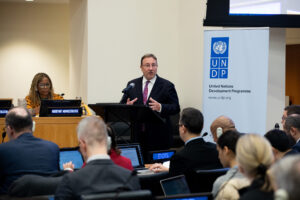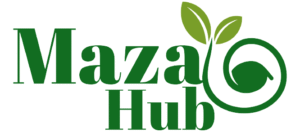Tanzania-based agritech startup MazaoHub closed an oversubscribed $2 million pre-seed round split between $1.5 million equity and $500,000 non-dilutive capital, with Catalyst Fund leading and participation from Nordic Impact Fund, Mercy Corps Ventures, elea Foundation, Impacc, and DOB Equity.
The round’s oversubscription signals that impact investors are prioritizing measurable agricultural outcomes over generalized digital agriculture platforms—a shift driven by pressure to demonstrate tangible climate adaptation results rather than just technology deployment.
MazaoHub operates a “Tech and Touch” model combining soil sensors, AI-driven agronomic recommendations, and physical Farmer Excellence Centres. The company reports 30% fertilizer reduction, five-fold increase in organic manure adoption, and improved irrigation efficiency among participating farmers.
The startup’s core product is low-cost soil testing kits and sensors that provide hyper-local data for AI-powered planting recommendations. This approach addresses a persistent problem in Sub-Saharan agriculture: generic advice that doesn’t account for microclimate and soil variability within regions.
Most agritech platforms provide standardized recommendations based on crop type and general location. MazaoHub’s soil sensors capture pH levels, nutrient composition, and moisture data at the farm level, allowing the AI to generate customized fertilizer and irrigation guidance.
For impact investors evaluating agritech deals, the 30% fertilizer reduction metric matters commercially. Fertilizer represents 40-60% of input costs for smallholder farmers in East Africa. If MazaoHub’s recommendations maintain yields while cutting fertilizer spending by a third, the ROI justifies adoption without subsidy dependency.
The Farmer Excellence Centres component differentiates MazaoHub from app-only platforms. Physical locations provide soil testing services, agronomic consultations, and input distribution—creating a hybrid model that mirrors M-Pesa’s agent network strategy.
The physical presence addresses trust barriers that purely digital platforms face with smallholder farmers. A farmer can visit a centre, receive soil analysis, and purchase recommended inputs in a single transaction. This integrated experience creates lock-in that mobile apps alone cannot achieve.
MazaoHub’s expansion plans target 500,000 farmers across Tanzania. For context, Tanzania has approximately 5.5 million smallholder farming households, meaning MazaoHub aims for roughly 9% market penetration. That scale would generate defensible network effects if the company can maintain unit economics.
The funding will also scale CropSupply.com, MazaoHub’s marketplace platform connecting farmers to buyers. This addresses a critical insight: improving agricultural productivity matters only if farmers can monetize increased yields.
Many agritech startups focus exclusively on production optimization while ignoring market access. MazaoHub’s integrated approach—soil intelligence, agronomic support, and buyer connections—attempts to capture value across the full agricultural value chain.
The strategic question for investors is whether vertical integration creates superior unit economics or operational complexity that prevents scaling. Agricultural value chains in Sub-Saharan Africa are notoriously fragmented, with multiple intermediaries capturing margins between farm gate and end buyer.
The $1.5 million equity and $500,000 non-dilutive split reveals investor expectations. Non-dilutive capital from the Livelihood Impact Fund suggests the company needs grant-like funding to subsidize early market development where commercial returns are uncertain.
Catalyst Fund’s investment thesis centers on fintech and digital services for underserved populations in emerging markets. Their lead position indicates belief that MazaoHub’s soil data and AI recommendations can achieve commercial sustainability, not just development impact.
Nordic Impact Fund, Mercy Corps Ventures, elea Foundation, Impacc, and DOB Equity all focus on blended value creation—financial returns alongside social and environmental outcomes. The investor composition suggests MazaoHub will face pressure to demonstrate both farmer impact metrics and path to profitability.
Competitive Landscape Remains Fragmented
East African agritech includes players like Apollo Agriculture (Kenya), which raised $40 million Series B in 2023, and Farmer.KeNYA, which focuses on mechanization. MazaoHub’s soil intelligence angle represents a distinct positioning, though execution risk remains high.
The five-fold increase in organic manure adoption is strategically important. Organic manure reduces dependency on imported synthetic fertilizers, improving farmer resilience to global commodity price shocks. For climate-focused investors, this metric demonstrates adaptation impact beyond just carbon reduction.
The oversubscribed round at pre-seed stage indicates that impact investors are actively seeking differentiated agritech plays after years of undifferentiated “mobile app for farmers” investments failed to scale. Soil intelligence combined with physical infrastructure and market access represents a more comprehensive thesis than purely digital approaches.
The challenge ahead: Can MazaoHub maintain unit economics while scaling to 500,000 farmers across Tanzania’s diverse agricultural regions? The answer will determine whether this represents a new template for sustainable agritech or another well-funded pilot that struggles to achieve commercial escape velocity








